‘8% growth is ambitious but not unreasonable. It’s an aspirational statement for India’
Policymaker, economist and politician NK Singh and Charles W Eliot University Professor, President Emeritus at Harvard and former US Treasury Secretary Lawrence H Summers were guests at a recent Adda.
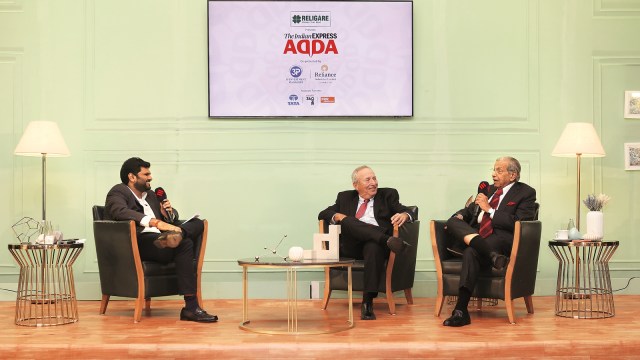 (From right) NK Singh, President, Institute of Economic Growth; Lawrence H Summers, President Emeritus at Harvard; Anant Goenka, Executive Director, The Indian Express Group
(From right) NK Singh, President, Institute of Economic Growth; Lawrence H Summers, President Emeritus at Harvard; Anant Goenka, Executive Director, The Indian Express Group Policymaker, economist and politician NK Singh and Charles W Eliot University Professor, President Emeritus at Harvard and former US Treasury Secretary Lawrence H Summers were guests at a recent Adda. The co-chairs of the key G20 Expert Group on ‘Strengthening Multilateral Development Banks (MDBs)’ under India’s G20 presidency spoke on global cooperation, the impact of the American economy on the world and India’s growth rate.
On what makes them optimistic about global cooperation
NK Singh: The number of multilateral development banks could be upwards of 17. They have several unique features. First and foremost, there is no other institution which has the reach, transparency and governance model that has stood the test of time. There is no other institution which has served successfully intermediated capital. For instance, you will be surprised that for the International Bank for Reconstruction and Development, the largest in the World Bank Group, against a capitalisation of just 22 billion, they have already lent close to 900 billion, which shows the extent to which they have successfully intermediated capital. If you add to that the lending of other multilateral development banks, on an average till 2019 — leaving out the pandemic years when the lending bumped up — they have done about $130 billion a year, which, if the basic core of our report is to be accepted, we intend to triple. We intend to take it from $130 billion to closer to $400 billion of concessional and non-concessional finance, and equivalent or more from private capital, adding to a trillion. If you add two trillion dollars of what we hope will be domestic resource mobilisation, a ballpark figure of roughly three trillion is what we believe the world would perhaps need between now and 2030, to be able to address the issues of poverty, shared prosperity, and the challenges of transboundary global public goods… Where is international cooperation coming from? I do not know but I think the reception we have received to our first set of recommendations has been more optimistic than what we had reckoned, and there’s a fair amount of traction, even as they await our second report, which is due to be given in Marrakech at the time of the annual meeting of IMF and World Bank.
On the impact of the American economy on the world today
Lawrence H Summers: The American economy has a larger impact on the world economy than any other economy. The US imports are a large engine of growth or not an engine of growth for many countries. US foreign investment in the supply chain that serves the US is a major driver of international commerce. The dollar has a special role in the international monetary system. Other countries’ interest rates move with the dollar. So, yes, I think the US continues to have a substantial impact on the world economy.
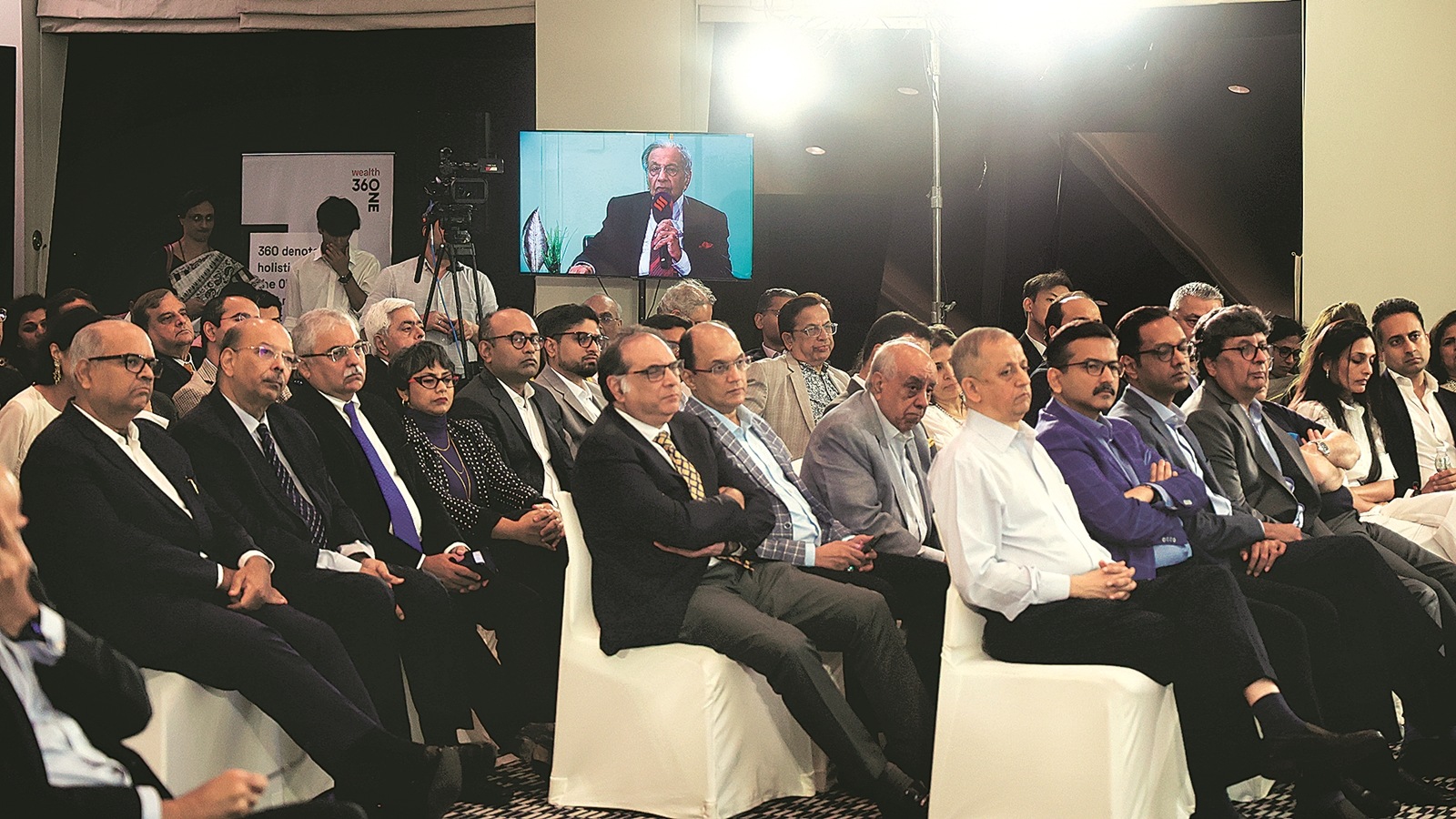 Guests at Express Adda (Express photo)
Guests at Express Adda (Express photo)
On whether the dollar will remain the global currency
Summers: I’ve been doing this for 30 years since I was in charge of dollar policy under US Treasury Secretary (Lloyd) Bentsen at the beginning of the Clinton administration. There has never been a five-year-period when there wasn’t an upsurge of concern about the dollar losing its role in the system. And there’s never been a moment when that concern proved warranted. If you look at the history of currency transitions, most notably the transition away from the British pound as a reserve currency, I think the lesson is pretty clear. You don’t lose your reserve currency status until it’s far from your biggest problem. If we inflate our currency away, if we don’t maintain a stable legal environment, if we turn very strongly inwards, if we have high inflation, if we politicise the use of the dollar, yes the dollar could conceivably lose its role. But after that had happened, it would be sort of the least of the US’ problems. So, I think, if we keep the fundamentals of what we’re doing reasonably strong, and do things right, the dollar is likely to take care of itself.
On India’s growth rate
Singh: Overall, all things taken together, I think there is a very high probability that we will continue to grow at about 7 to 8 per cent, if not more. Don’t also forget the transformative nature of technology. Very few countries have been able to, in such a short time, harness the power of digital technology in multiple ways as we have in terms of the governance architecture. Traditionally, it was said that a lot of the money that the government spends is completely wasted. Digital technology and direct transfers have offered alternative viable ways in which we, for instance, during the pandemic, instead of doling out cash, were able to do it in a different way. If we begin to apply all that, and the digital transformation into healthcare systems, education, agriculture, there is, I think, a huge multiplier game, and the expectations of optimism the world has about India are more likely to be realised than not.
On how India can achieve this growth
Summers: Eight per cent seems to me to be a very ambitious, but not completely unreasonable growth target for India. It is not my prediction of how fast India will grow. It is an aspirational statement for India. I think India’s ability to achieve it depends on a few things. One thing is beyond India’s control. Is there a reasonably stable, rapidly growing global economy? And it depends a lot on just how large an impact AI has over the course of a generation. Secondly, it depends on the willingness of India to continue the hard work of reform. Perhaps most fundamental for India are the set of issues around fiscal federalism, and the relationship between the state and the national governments and many places where competition between the states or non-overlapping state election cycles lead to unsustainable policies at the state level. That, though, is also India’s low-hanging fruit, that India has more people who are left far behind right now than China, and getting them fully included is a route to success. The third thing that will determine what happens in India is its approach to openness in the world. Traditionally, self-reliance has been an important word in the Indian economic policy but when I hear that word, I get nervous. There are some things where a country needs to be self-reliant but very often self-reliance can slide into being a general defence to protectionism. India needs to take a much more open approach.
 When asked about the AtmaNirbhar Bharat scheme, Singh said every country’s national interest would be in making sure that its dependability on the supply chain is assured in critical areas. (Express Photo by Narendra Vaskar)
When asked about the AtmaNirbhar Bharat scheme, Singh said every country’s national interest would be in making sure that its dependability on the supply chain is assured in critical areas. (Express Photo by Narendra Vaskar)
On protectionism and productivity
Singh: In 1991, India had perhaps the highest rates of tariff, we had quantitative restrictions, and the first area of important economic reforms were trade reforms before we began to look into structural reforms. And that was very substantially and very happily completed, even though we sought to align our tariff rates to the average rates of developing countries. Over time, one of the issues which we cannot overlook is geopolitical and other considerations. Obviously, every country’s national interest would want to look into making sure that your dependability of the supply chain was assured in critical areas. That’s one area where production needs to be substantially more competitive, perhaps through investment schemes we have or through subsidies. But these are all transitional because we recognise that no country can achieve a long-term sustained eight per cent rate of growth without a degree of openness of the economy, and without trade becoming an engine of growth, which needs to be fully harnessed. In the process, national interests would require that we do not become hostage to unsurprised interruptions in the supply chain, due to events which could be purely exogenous, and it would be very unwise to overlook that degree of possibility considering some recent experience.
On the US-China relationship
Summers: I think the US and China share one world, both want improvements in living standards for their people. Neither of them wants military conflict. So there are some very real shared interests on which to build. Unfortunately, I think the mood on both sides is a bit caught in a self fulfilling spiral of negativism about each other. From an American point of view, wolf warrior diplomacy, rapid increase in military spending, very substantial escalation of anti-American rhetoric and aggressive intentions towards other parts of the Pacific — all of this is ominous. If you’re Chinese, I suspect you can point to some American rhetoric that is problematic. We need to be very careful at a moment when the Chinese economy is quite vulnerable. We need to do what we need to do to protect our national security. But we need to not do more than that. Many people conceptualise this as economic warfare with China, which I don’t think there’s a constructive posture to see the relationship in.
On the future of the great American University
Summers: The great American universities are going to be okay. There are always going to be plenty of students who are extremely able, who want to go to Harvard. Harvard’s got a $50 billion endowment and extraordinary faculty in many fields. So I’m not worried about whether Harvard is going to be okay. I’m worried about whether American educational institutions like Harvard, and probably much more importantly, our public schools, from K to 12, are going to do what they need to do to make sure that the future of the country is what it should be. There are a variety of attitudes that have crept into our educational system that are antithetical to people being well-prepared for a tough world. I find it almost unimaginable but it is true that on a 4.0 scale, where 4 is an A and 3 is a B, and 2 is a C, the average grade-point average at Harvard is now above 3.7. So it’s more than 70 per cent As, 30 per cent Bs, and no Cs. It’s not exactly what it is, but that gives you a sense of how inflated the grades are. Many of our great universities no longer have entrance exams. They judge people on the basis of the essays they write, describing all the things they have been through in life.
On whether colleges should remain noisy places
Summers: I don’t know what noisy means. Should there be a lot of vigorous debate on campuses? Absolutely. Should people disagree with each other? Absolutely. Should students dictate what the curriculum is going to be? Absolutely not. Should the process of education be disrupted because people have views about the issues of the day? I think in sufficiently extreme cases, the answer might be yes. But as a normal matter, I think the answer to that question should be no.
 N K Singh and Lawrence Summers were in conversation with Anant Goenka, Executive Director, The Indian Express group.(Express Photo by Narendra Vaskar)
N K Singh and Lawrence Summers were in conversation with Anant Goenka, Executive Director, The Indian Express group.(Express Photo by Narendra Vaskar)
Rapid Fire with With NK Singh & Lawrence H Summers
If you were to take a guess — how long before one nation-one election gets implemented?
Singh: I have no idea.
If there was one currency other than your respective home currencies that you were both forced to save half your personal wealth in, which would you choose?
Singh: Yen
Summers: I would hold a diversified basket of currencies.

With the benefit of hindsight, your report card for the role of the Finance Minister of India, Nirmala Sitharaman.
Singh: I’d give a high rating, closer to eight.
Summers: India’s done very well, economically. That’s the test of a finance minister. So high grades.
How would you rate the success of the largest institution of global cooperation, the United Nations.
Summers: There’s a lot that has happened that’s positive. There’s a lot that’s left to do. A grade of five.
When was the last time you agreed with a decision the US Fed made?
Summers: I thought the Fed was way off course in 2021 but they’ve moved very quickly to raise interest rates and that’s been probably the right thing to do. So I’ve been in general sympathy with what they’ve done for the last year.
One advice you would give Jerome Powell today?
Singh: Difficult. I think he has many advisors and many problems. But I think that a continuation of maintaining the stability of macroeconomic policy is paramount for long-term stability and growth.
Summers: NK has boldly recommended that the Federal Reserve focus on maintaining the stability of macroeconomic policy. That is a reckless recommendation,
my friend.
 On Multilateral Development Banks, Singh said that the private investment in the MDBs is currently low and there is a need for it to improve. (Express Photo by Narendra Vaskar)
On Multilateral Development Banks, Singh said that the private investment in the MDBs is currently low and there is a need for it to improve. (Express Photo by Narendra Vaskar)
Your recommendation to India’s Shaktikanta Das (RBI Governor).
Summers: Accelerate the work of financial reform. Put more of finance into the private sector where money can find its highest and best value. Twentieth century financial repression has no place in mid-21st century India’s economy.
One piece of advice for the current US Treasury Secretary Janet Yellen.
Singh: Consider favourably the recommendations which we are about to make on the need for recapitalisation of multilateral development banks.
Your advice to the Finance Minister of India.
Summers: Invest your political capital in the very important recommendations put forward by NK Singh. The valuable report that he has co-produced.
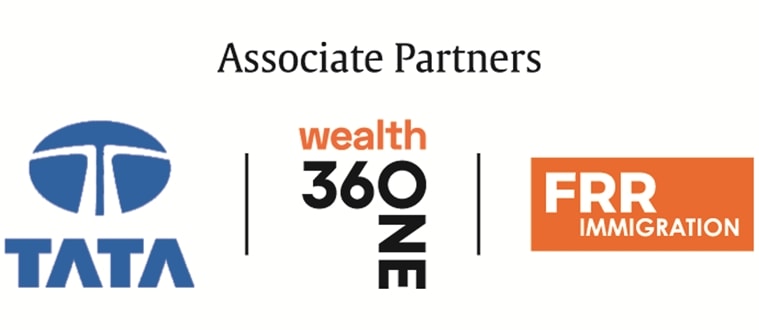
The one thing that Indian universities can learn from American ones.
Summers: Compete with each other for faculty, for students, for the attractiveness of programmes. Bring as many people in from abroad as you can, send students abroad. Be open and competitive, rather than being closed and comfortable.
The one thing that American education can learn from India.
Summers: To remember the traditional virtues of excellence, merit and pride through achievement.
The one thing that most urgently needs reform in American universities.
Summers: There needs to be more willingness to accept discomfort, uncomfortable ideas, difficult debates, honest feedback on poor performance.
One thing that urgently needs reform at Harvard.
Summers: I think Harvard probably is like other universities in that regard. If we at Harvard can stay faithful to the idea of our motto, Veritas and Truth, and we can remember that there are many parts of society that can pursue social justice, but that it’s the special and unique functions of universities to try to seek truth better, and to pass that truth on to next generations. That’s what I think is most important.
The one thing that Biden could learn from Clinton.
Summers: There are some places I don’t want to go! I’ve been privileged to work very closely with three presidents: Bill Clinton, Barack Obama, and during his time as Vice President, Joe Biden. I would say the most important lesson that I learned about leadership from all three of them is that there is no single formula for leadership, that you have to be true to yourself.
The one thing that Modi should learn from Vajpayee.
Singh: Having had the privilege of working closely with both, I think they both have a degree of sagacity and a style which is unique to them.
Question from the audience
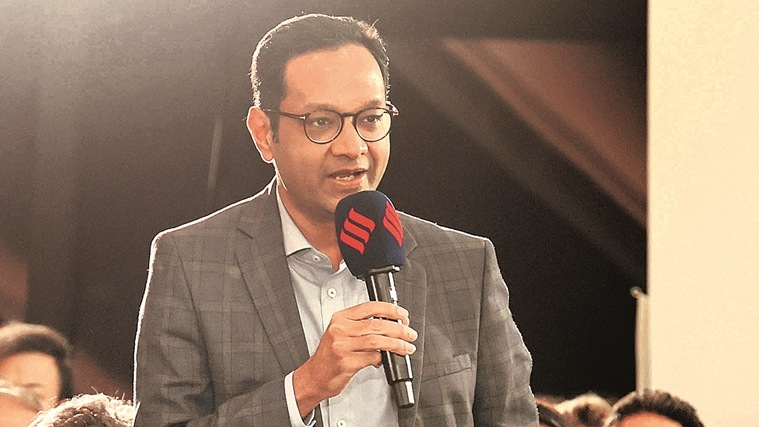
Anuj Poddar
Managing Director & Chief Executive Officer, Bajaj Electricals
If you were to have this conversation in 2030, what might be the one thing that satisfies you, disappoints you or surprises you?
Singh: What will be most surprising is notwithstanding the rationale for strengthening international cooperation, particularly the reach of multilateral development banks both for concessional and non-concessional finance. What would surprise me is a greater recognition on the need to change the course of history in which this cooperation has taken place. Action remains hesitant. What would fill me with great joy is that some of the recommendations we’re making would get the kind of support we hope for.
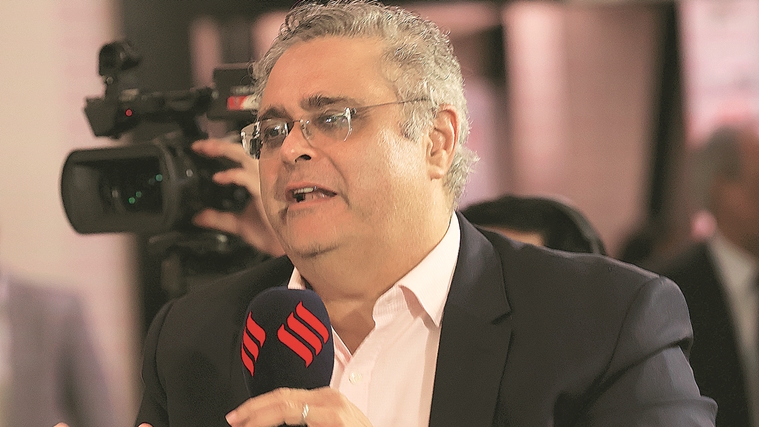
Suhail Nathani
Managing Partner, Economic Laws Practice
At a recent climate summit, a suggestion was made for debt moratorium For Africa. Will It help fund this global climate effort?
Summers: There are probably some areas where a moratorium on debt service should be looked at, but I would prefer climate-specific policies to solve climate problems. To a greater extent, the world is going to have to come back on debt issues more than it has.
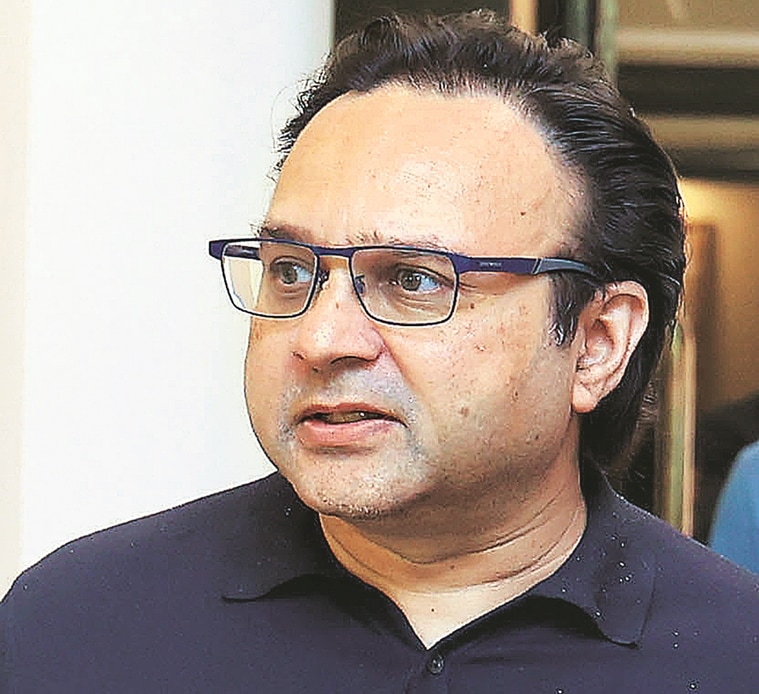
Pankaj Surana
Managing Director, Surana Gem and Jewellery Industries, Pvt Ltd
Given the importance of the US in global economic growth, do you see any risks in future, depending on the Republicans or DemocratS coming to power?
Summers: The answer to all questions of the form ‘Do you see any risks?’ is yes. Am I scared about the prospect of the US election going towards Donald Trump in a way that I’ve not been scared about it going to the Republicans, because he seems to be a more subversive figure of both national and international tradition? Yes, I very much have those fears.

Soli K Cooper
Senior Advocate
One of the major blocks to global corporation is the Russian invasion of Ukraine. How will that impact what you want to achieve?
Singh: If the resources of some of the countries get increasingly engaged in the reconstruction of Ukraine, which is a humanitarian necessity, the extent to which it would impair the appetite and fiscal room for countries to beef up support for multilateral development banks, when it comes to their recapitalisation, is an area of concern.
But it will not detract from the ongoing international cooperation, efforts to harness private capital to address global issues, of climate, in terms of harnessing, for instance, cheaper sources of renewable energy, or changing the patterns of economic activity to be more dependent on renewable fuels. This is only possible if the ability of international institutions to meet the financial needs is addressed.







